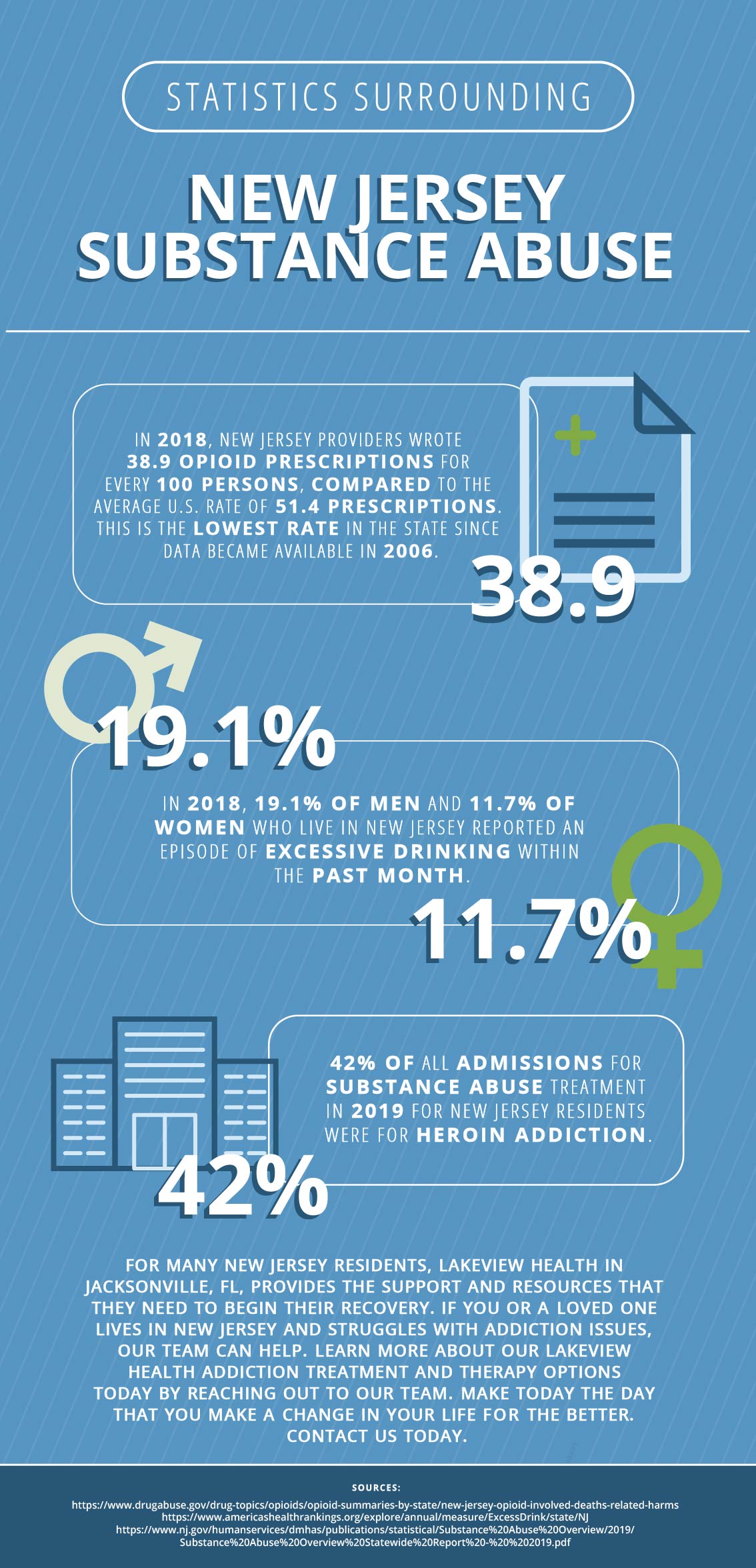Like most other states in the US, one of New Jersey’s greatest public health threats is the widespread availability of opioids including illegal drugs, such as heroin, and legal prescription painkillers like oxycodone and hydrocodone1. However, thousands of Garden State residents also suffer from addictions to alcohol and other hard drugs, and many of those with an addiction abuse more than one substance simultaneously. While there are many drug rehab centers in New Jersey, Lakeview Health’s out-of-state drug rehab center may be exactly what you need to start healing.
At Lakeview Health, our comprehensive care for substance abuse is open to New Jersey residents, or anyone who is ready to begin their recovery journey. Our beautiful center in Jacksonville, FL, allows people to seek recovery in a serene and peaceful environment. If you or someone you care about may benefit from outstanding addiction treatment, reach out to our Lakeview Health team today by calling 904.531.3505 or completing our secure online form. Many New Jersey residents find that recovery at Lakeview Health in Florida allows them the chance to distance themselves from triggers in their hometowns and immerse themselves in treatment.

New Jersey Substance Abuse Statistics
According to New Jersey Substance Abuse Monitoring System (NJ-SAMS)2, there were 98,479 hospital admissions for substance abuse treatment during 2019. About 68% of all patients were male, and 32% were female. Camden, Ocean, and Essex counties had the highest rates of admissions.
Outpatient treatment accounted for a quarter of all treatment in 2019, with intensive outpatient treatment in 24% of all treatment plans. Other popular levels of care in New Jersey include: